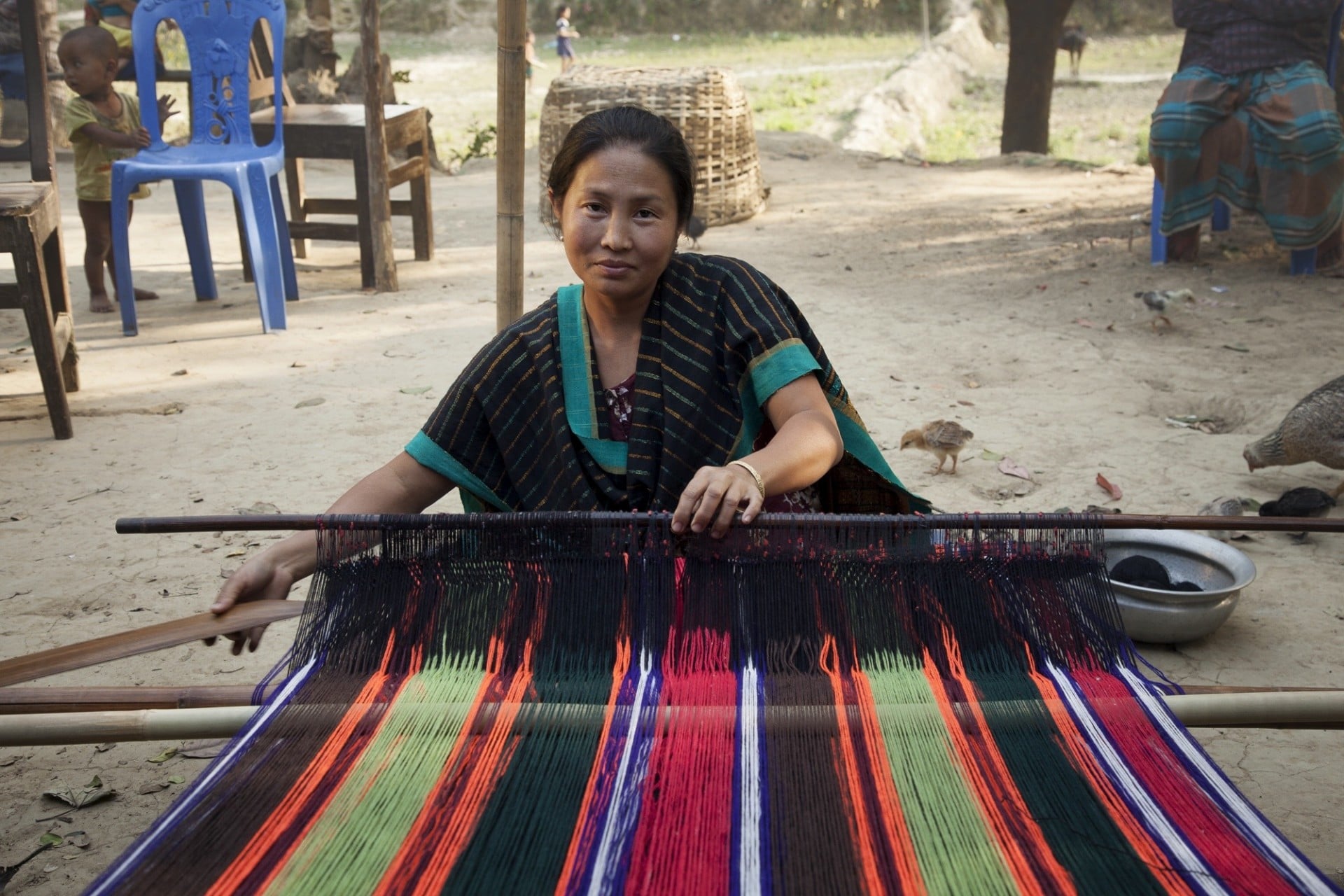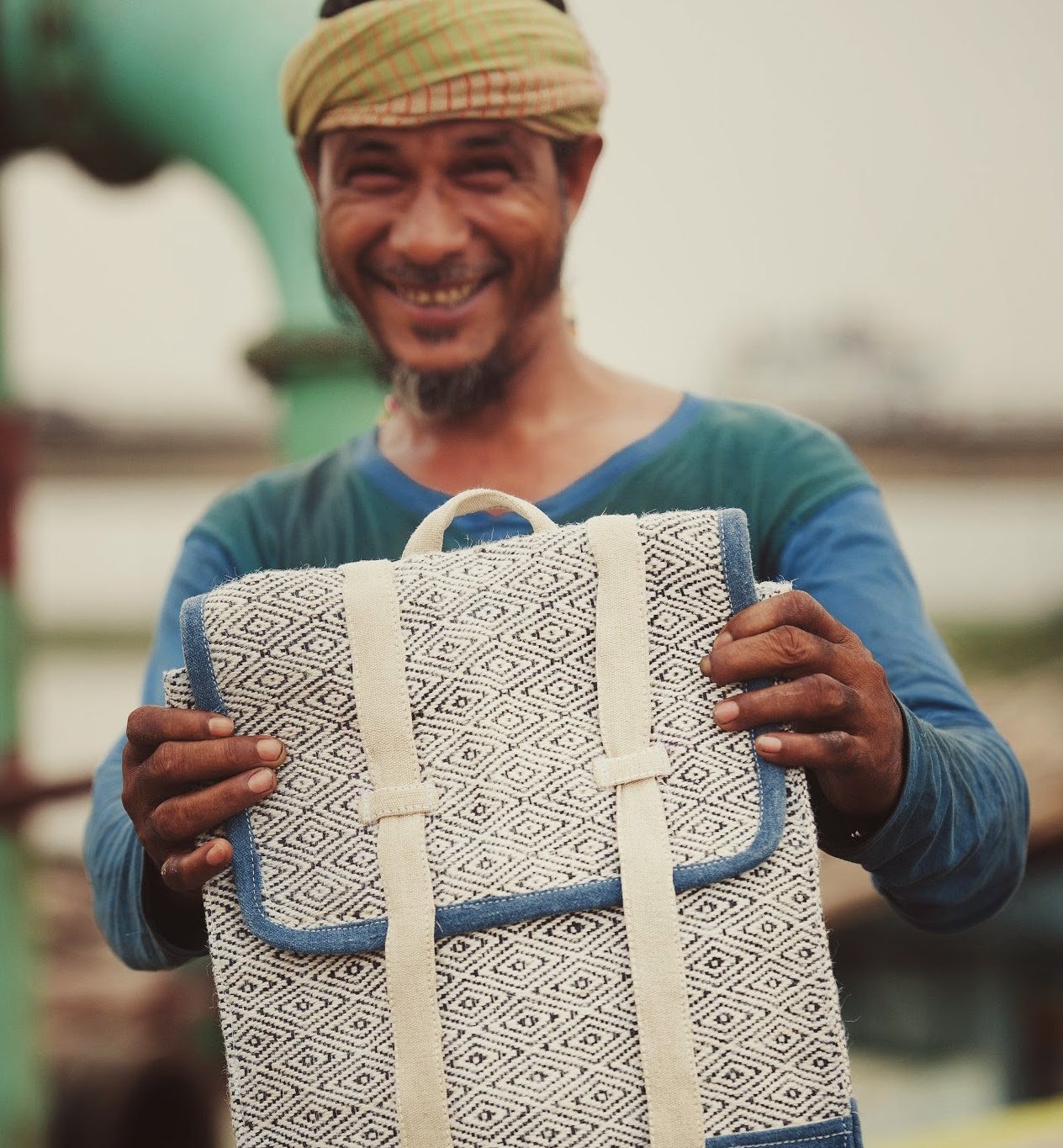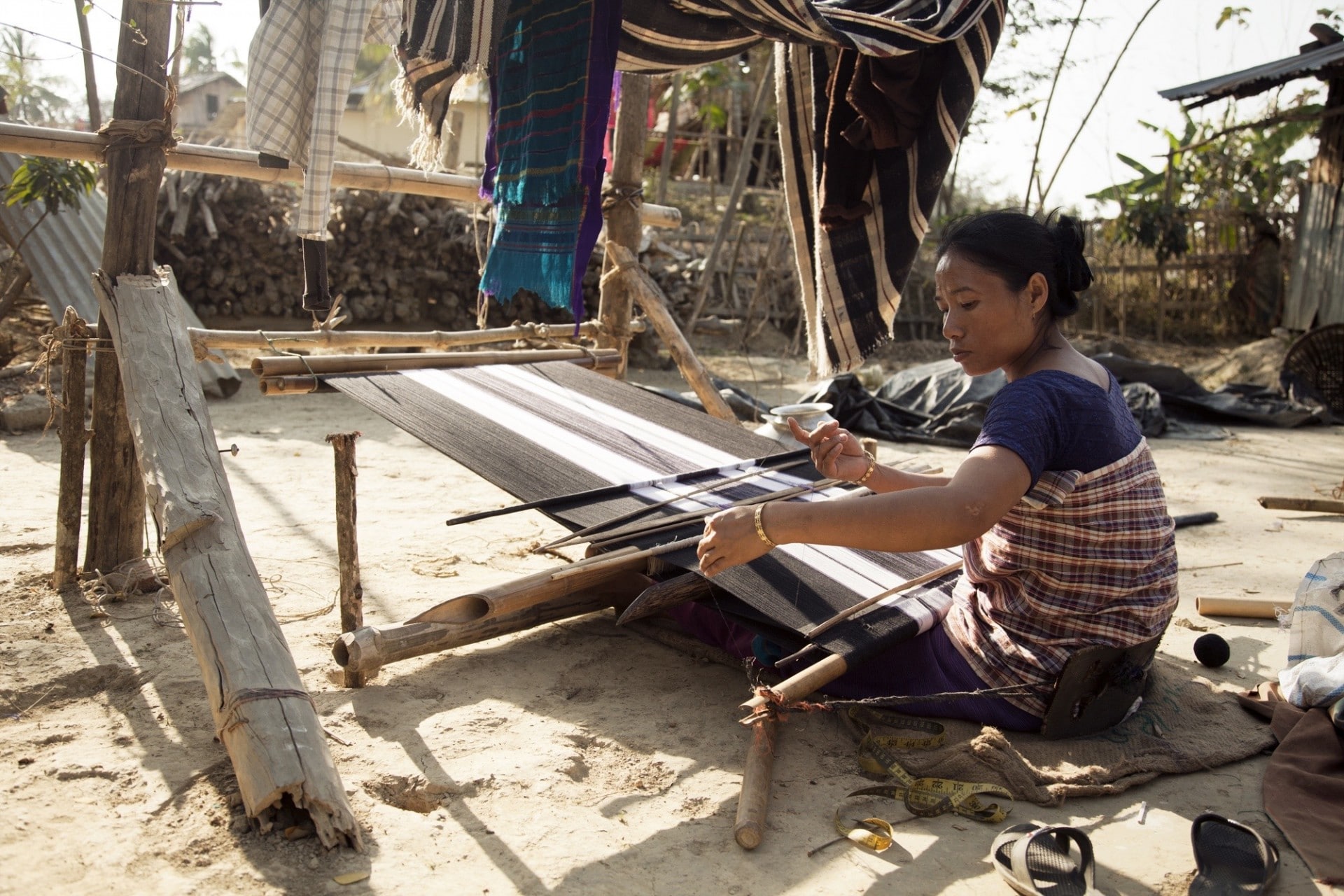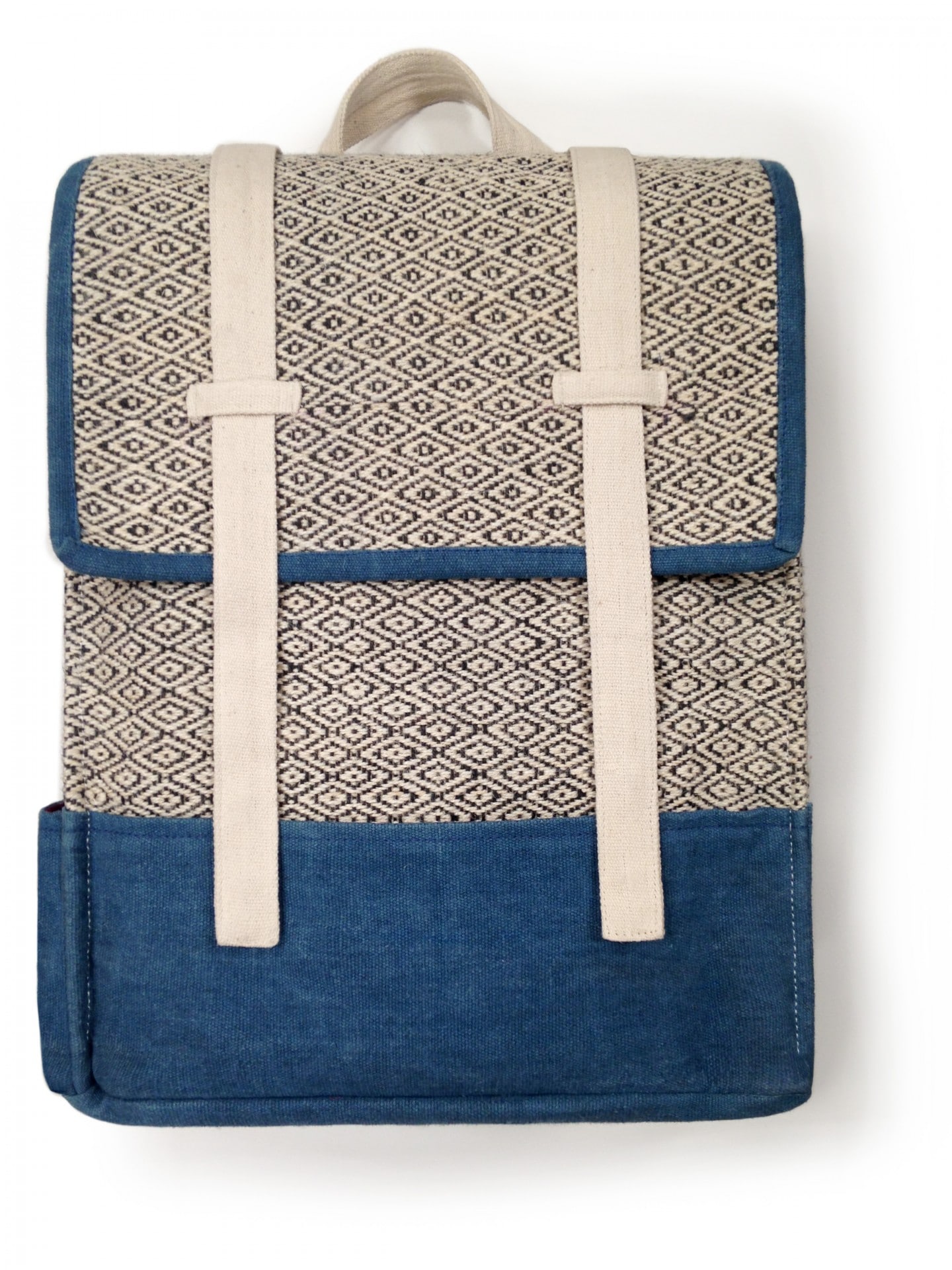Bangladesh (Dhaka)
When a busy commercial block collapsed due to structural failure in the 2013 Rana Plaza building collapse in Dhaka, Bangladesh, Luke Swanson and Brooke McEver were only miles away researching climate change. The brutal working conditions that killed 1,129 in the deadliest disaster in garment history inspired the socially-minded brand builders to create Tripty, a sustainable fashion company with positive social and environmental impact in the local communities.
Taking local handicrafts and making them into something that benefits people’s lives, they fashion backpacks from cotton grown near the border of Burma, naturally dyed with local materials and woven on traditional looms. The straps are made from pineapple leaves, which contributes towards helping a big waste issue. As leaves don’t compost easily, farmers have to hot compost them or pay to get them moved, which many can’t afford to do.
Lined with old saris from the women who make the bags, the brand is transparent about its production process, provides safe work environments and steady incomes – which often pays for the pineapple farmers’ children’s clothing and schools. The pair are currently being approached by different countries and brands and Swanson hopes to “continue to grow to find more ways to help these communities.”
Adapted from an interview with Luke Swanson and Brooke McEver in Collectively. Read what happened when their Editor chatted to our Editor, Lisa Goldapple, about Atlas of the Future.
Project leader
Luke Swanson and Brooke McEver, Founders
Support the Atlas
We want the Atlas of the Future media platform and our event to be available to everybody, everywhere for free – always. Fancy helping us spread stories of hope and optimism to create a better tomorrow? For those able, we'd be grateful for any donation.
- Please support the Atlas here
- Thank you!






